
Can chronic stress affect your brain?
Feeling stressed out is an understandable response in the midst of a worldwide pandemic. “Corona gave us a double punch of stress by the initial shock of the pandemic and then just as we were adjusting to that, disrupting every aspect of normal life,” says David A. Merrill, MD, PhD, psychiatrist at Providence Saint John’s Health Center, director of the Brain Health Center at the Pacific Neuroscience Institute in Santa Monica, California, and professor emeritus of psychiatry at UC Berkley.
“The human brain wasn’t made to handle prolonged stress, like the kind many of us are suffering from during the coronavirus quarantine,” he explains. “It’s quite good at handling short-term stressful events but chronic high levels of stress can lead to many psychological and physical problems in your brain.”
Stress hurts your brain in two ways, he says. First, it targets two areas of the brain needed for daily life, the hippocampus and frontal lobe. Then, chronic stress can affect the vascular system that feeds the brain. This is why it’s more important than ever to make sure you’re taking care of your brain health, he says. Here’s what stress does to your brain and how to help ameliorate it.
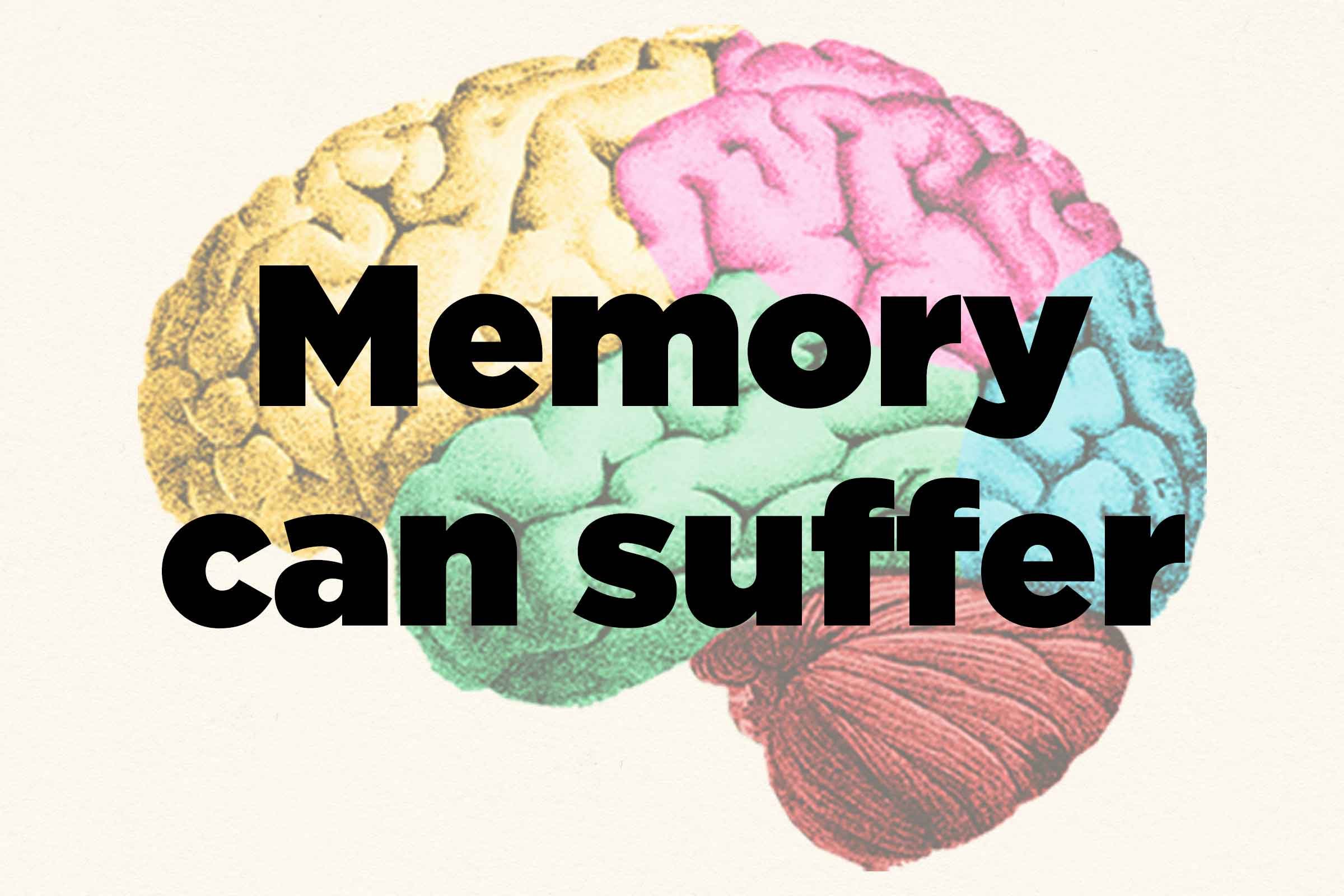
Effects of stress: It can impact your ability to retain information
Stress affects the hippocampus—a structure important for learning and memory—altering how neurons connect with each other, which affects both your short- and long- term memory, Dr. Merrill explains. “Stress makes you less able to focus to learn new things and also more forgetful so it’s harder to remember them,” he says.
“Ultimately, these changes can affect cognitive function, including changes in learning, memory, and emotional well-being,” says Sundari Chetty, PhD, neuroscientist, memory researcher, and head of the Chetty lab at Stanford School of Medicine and co-author of a study on how stress affects brain structure and function, published in Molecular Psychiatry. These brain changes could potentially contribute to mental health conditions such as anxiety, depression, and post-traumatic stress disorder, she explains.
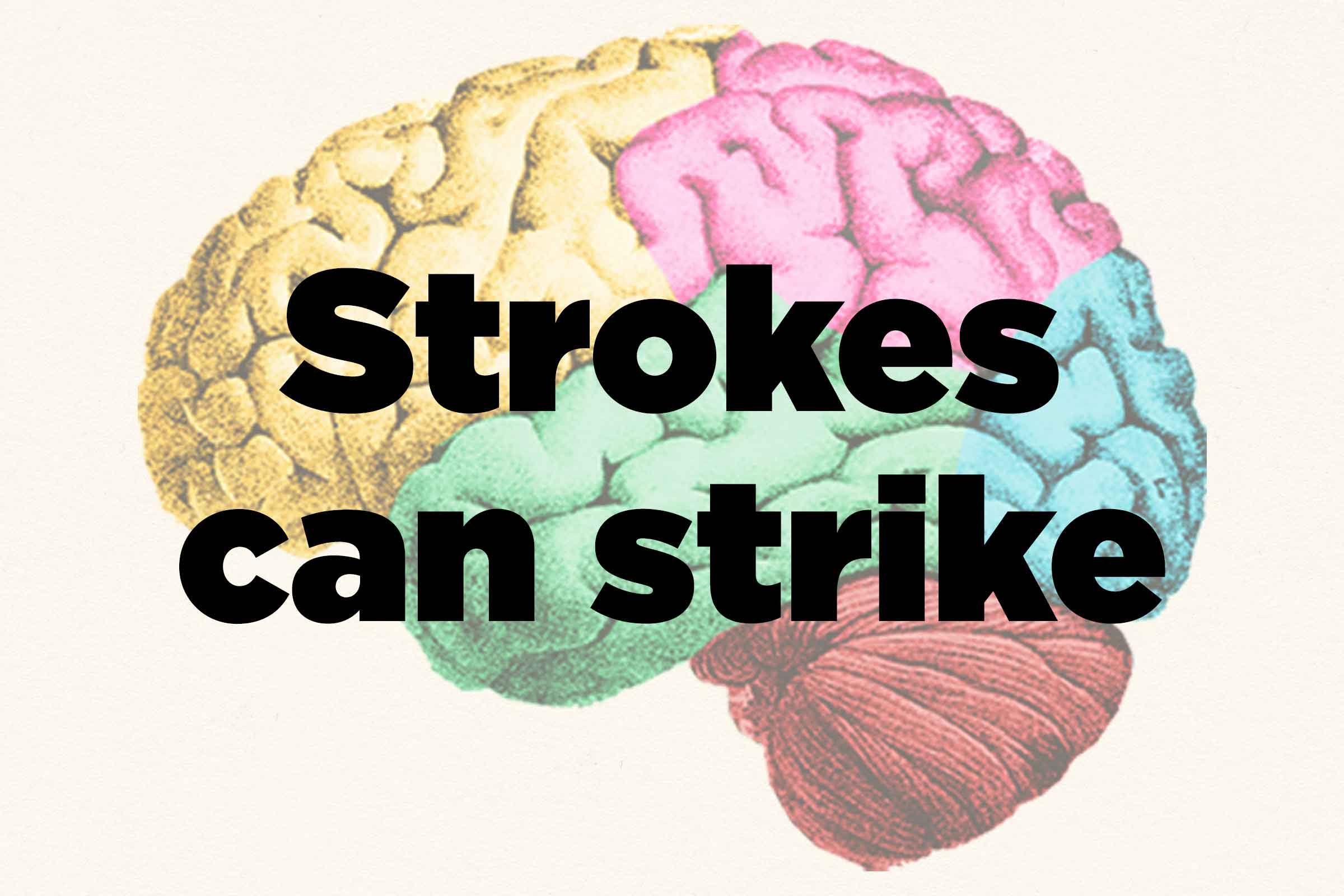
Effects of stress: It may increase your stroke risk
Significant levels of stress could increase your risk of vascular diseases, including strokes, according to a study published in Stroke. Researchers asked more than 6,700 adults aged 45 to 84 to fill out questionnaires about psychological factors, including stress and depression. At follow-up 8 ½ to 11 years later, those who reported the highest levels of chronic stress, caused by problems such as health, money, and relationships, were more likely to have suffered a stroke or transient ischemic attack (TIA). TIAs, or mini-strokes, are a temporary reduction in blood flow that causes stroke-like symptoms, which eventually resolve. “One of the most interesting findings in recent research is how much stress affects the vascular system, including in the brain,” Dr. Merrill says. “It can be so significant that it mimics what we see in people with brain diseases.”
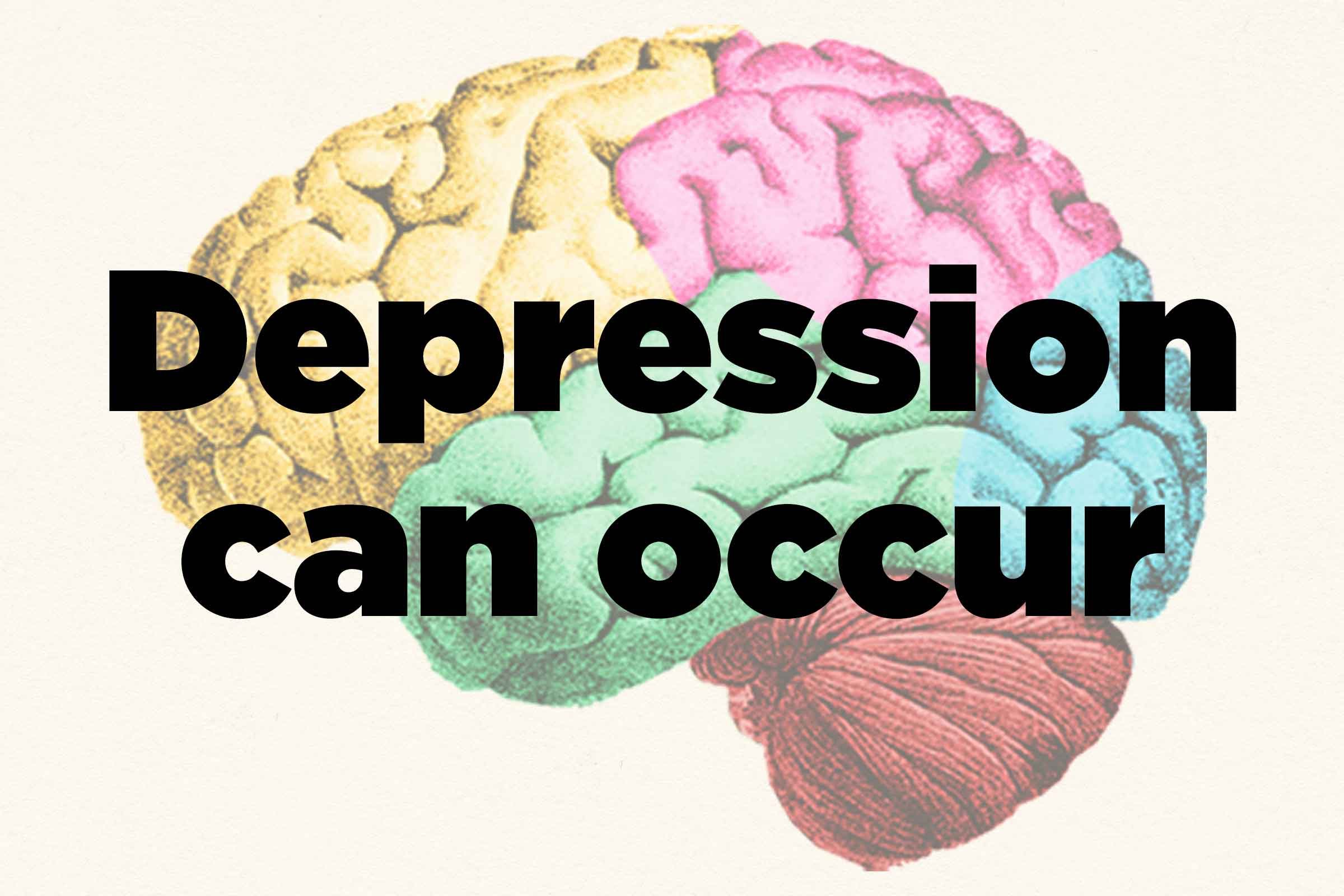
Effects of stress: You may have a higher depression risk
Stressful life events, both acute and chronic, may cause a series of psychological and physiological changes in the brain that increases your risk of depression, according to a 2015 meta-analysis published in Current Neuropharmacology. Why? Stress targets the amygdala, the part of your brain that deals with emotions, which may be one reason why you often feel an increase in sadness and anger—two signs of depression—when you’re super stressed, Dr. Merrill says. In addition, they found indications in their study that stress can cause changes in your white matter, which may explain why stress is a known factor in triggering and worsening mental illnesses including depression, suicide, and PTSD, Dr. Chetty adds.
(If you or someone you know has had thoughts of self-harm or suicide, contact the National Suicide Prevention Lifeline (1-800-273-8255), which provides 24/7, free, confidential support for people in distress.)
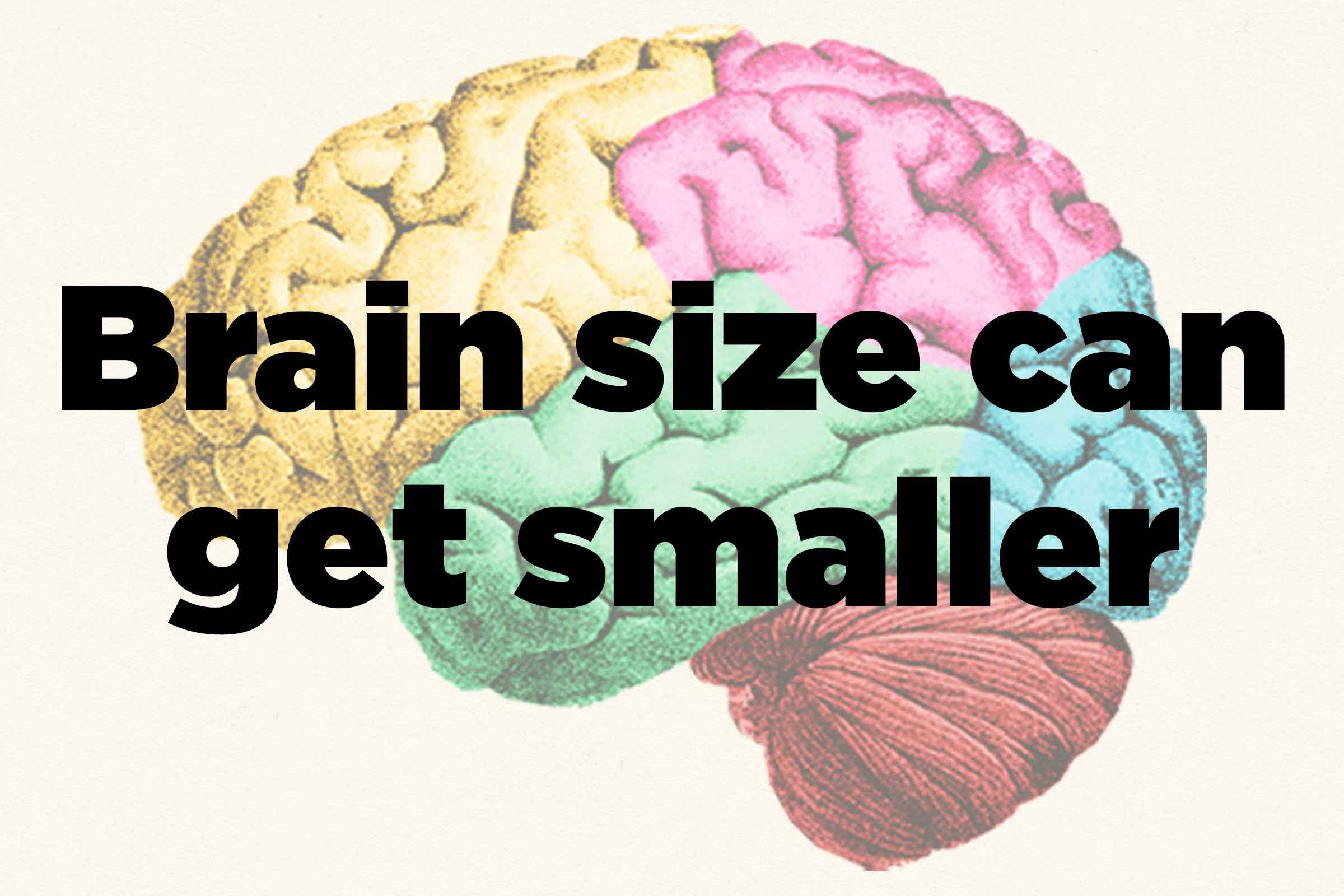
Effects of stress: Your brain volume may be affected
People undergoing a recent stressful event, like losing a job, getting divorced, or the death of a loved one, as well as those with more cumulative stressful life events, are more likely to have a smaller brain volume in certain areas than those with fewer stressful experiences, according to a study published in Biological Psychiatry. Researchers looked at MRI scans of 103 healthy people and found that those with more stressful life events had a lower volume of gray matter in parts of the medial prefrontal cortex, which handles self-control and emotion. (Although this study showed a link, it can’t prove cause and effect). “This effect can be cumulative over time, with stressful events changing your brain in ways that make it harder to bounce back and deal with future stressful events, leading to a vicious cycle,” Dr. Merrill says. “This is why cultivating resilience is so important.”
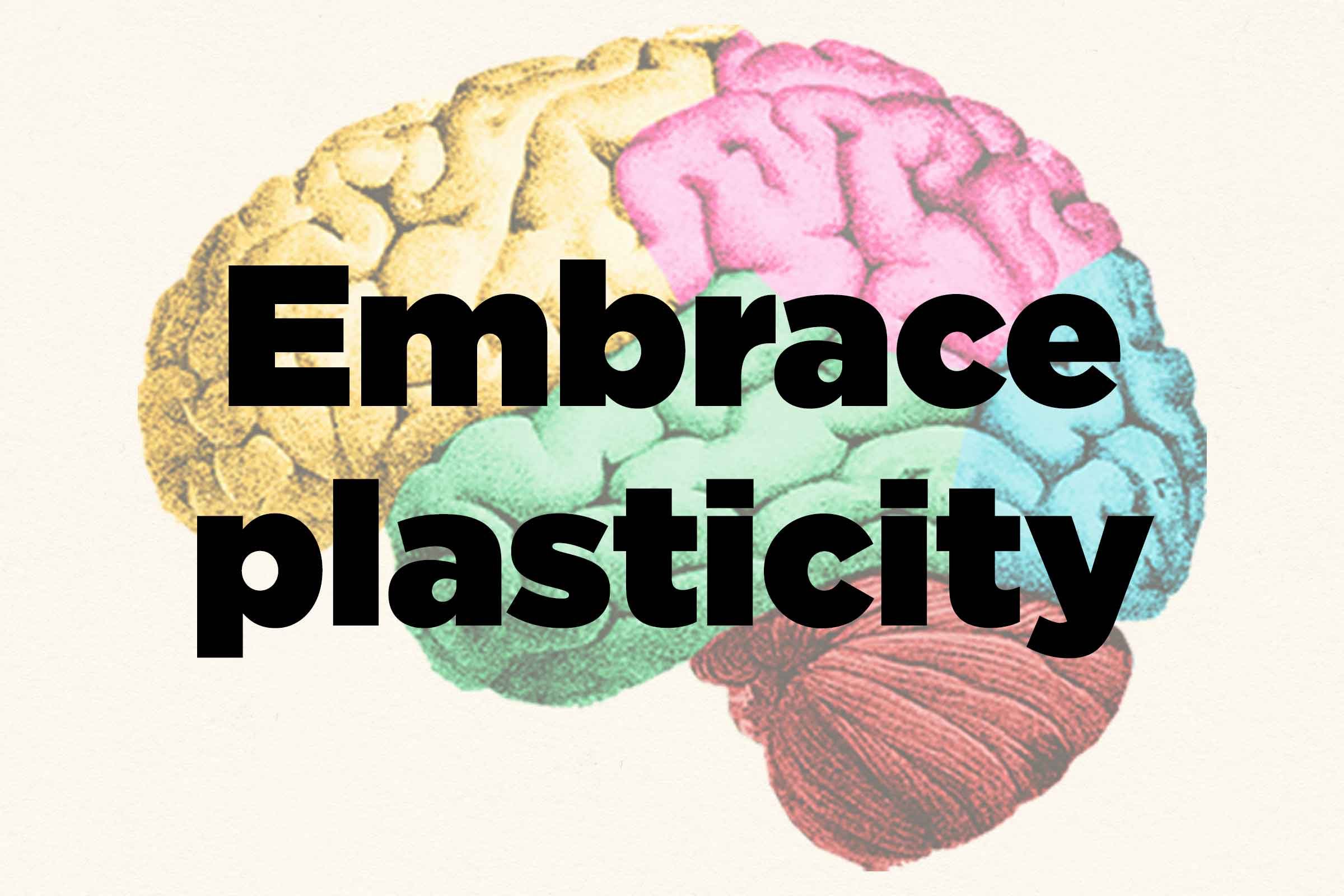
How to calm down: Know the effects of stress are reversible
The good news: Research indicates the brain has a natural ability to recover from stress. “Generally speaking, the brain has a substantial degree of plasticity, meaning that the brain is quite malleable,” Chetty says, adding that if you can remove or lessen the source of the stress, you can reverse any changes and return to a healthy baseline. (Here’s how to tell the difference between good and bad stress.)
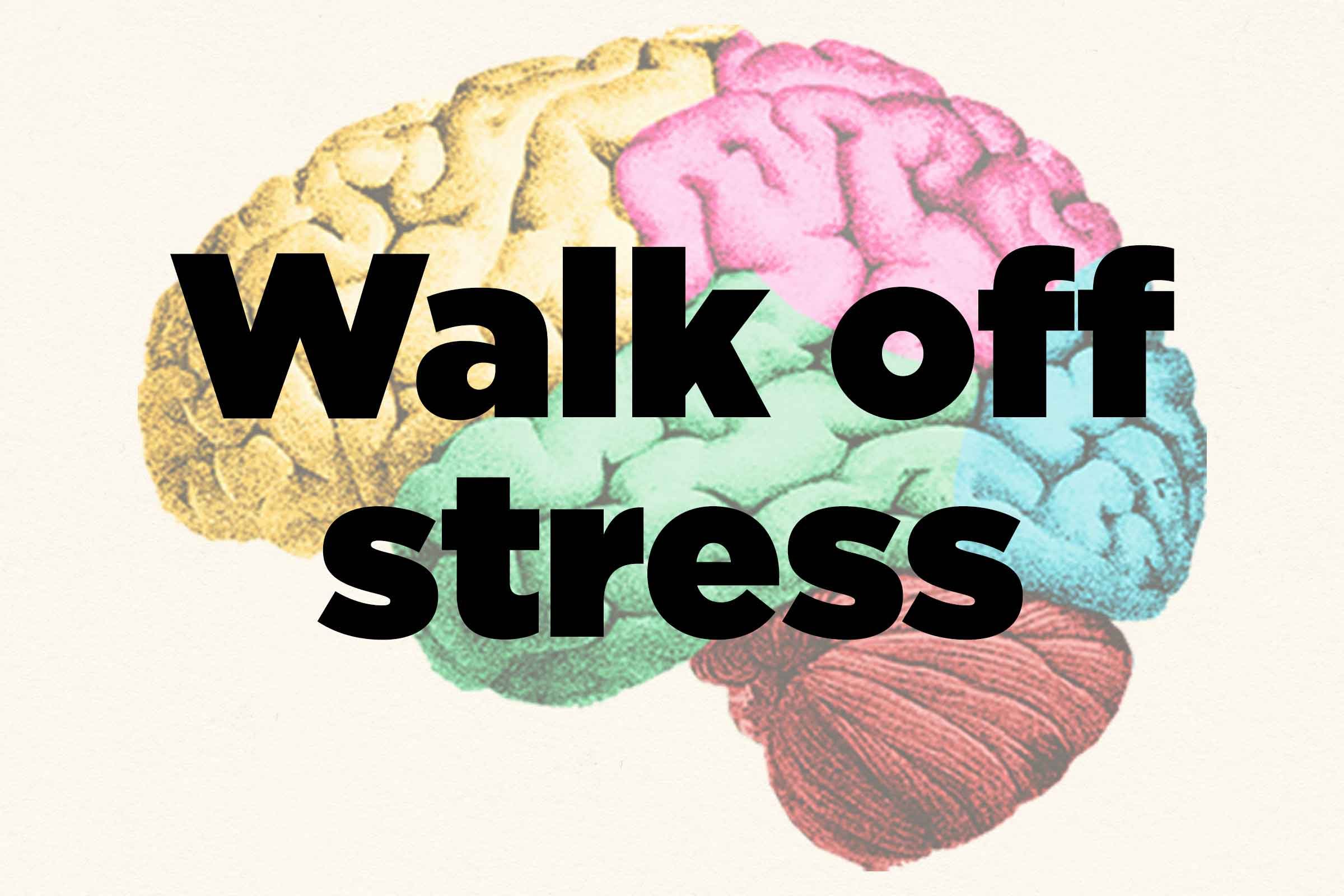
How to calm down: Exercise
The number one recommendation for reducing stress and increasing your brain’s ability to deal with it is to get some exercise every day, Dr. Merrill says. Yes, this even includes during quarantine. “It doesn’t need to be fancy, take a walk outside through your neighborhood every day, that’s a great place to start,” he says. Physical exercise could potentially prevent or reduce elevations in stress hormones, thereby reducing harm to the brain, Chetty says. For example, just 15 minutes a day of gentle walking can help improve mood and lower stress.
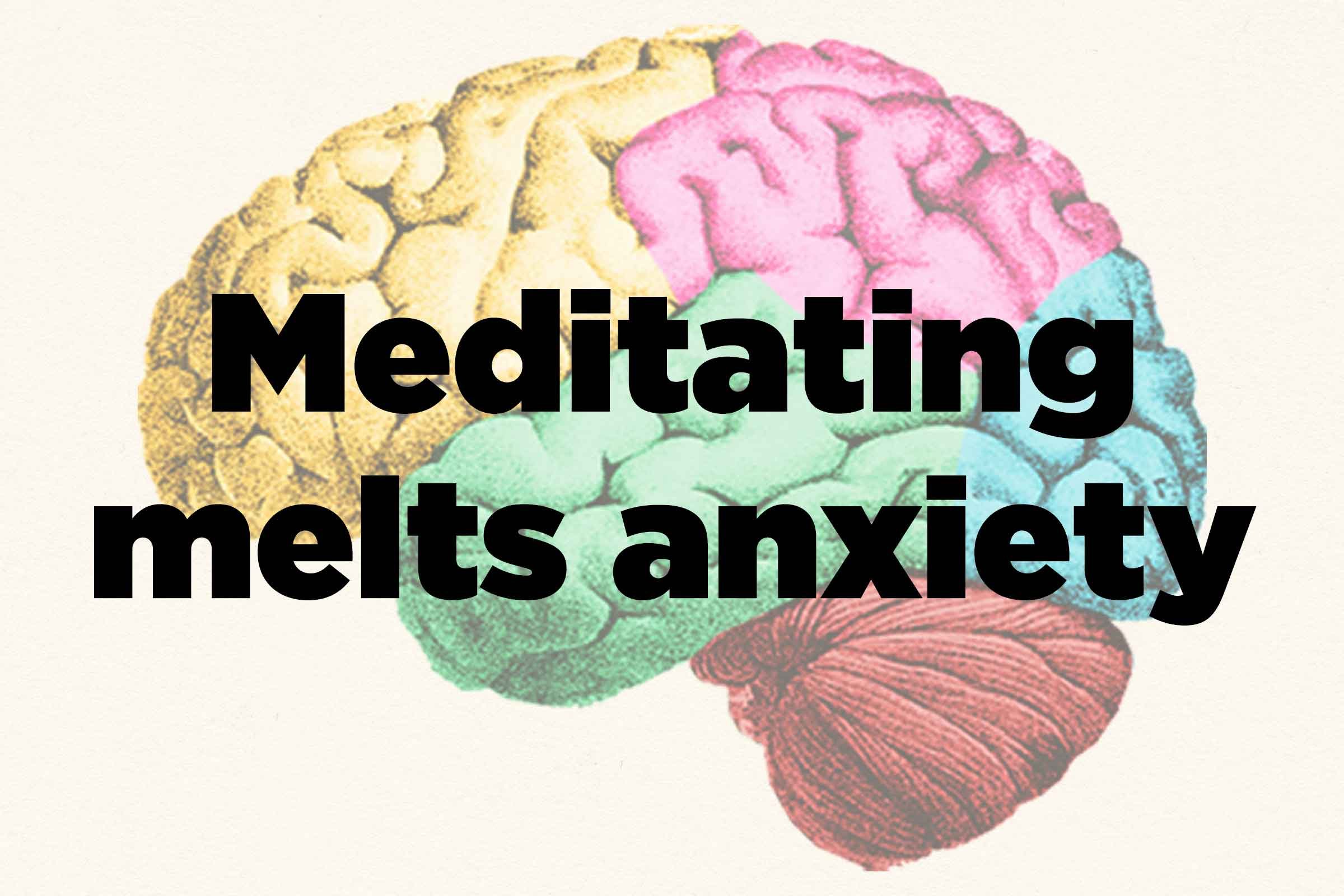
How to calm down: Meditate
“Meditation is a simple and effective way to reduce stress and improve your brain function and it’s perfect for quarantine because you can do it on your own, at home,” Dr. Merrill says. Doing a daily meditation significantly reduced stress and anxiety from multiple types of negative events, according to a meta-analysis published in JAMA Internal Medicine. Another reason to do meditation during this pandemic is that it may help your immune system, which could help fight the virus, he adds.
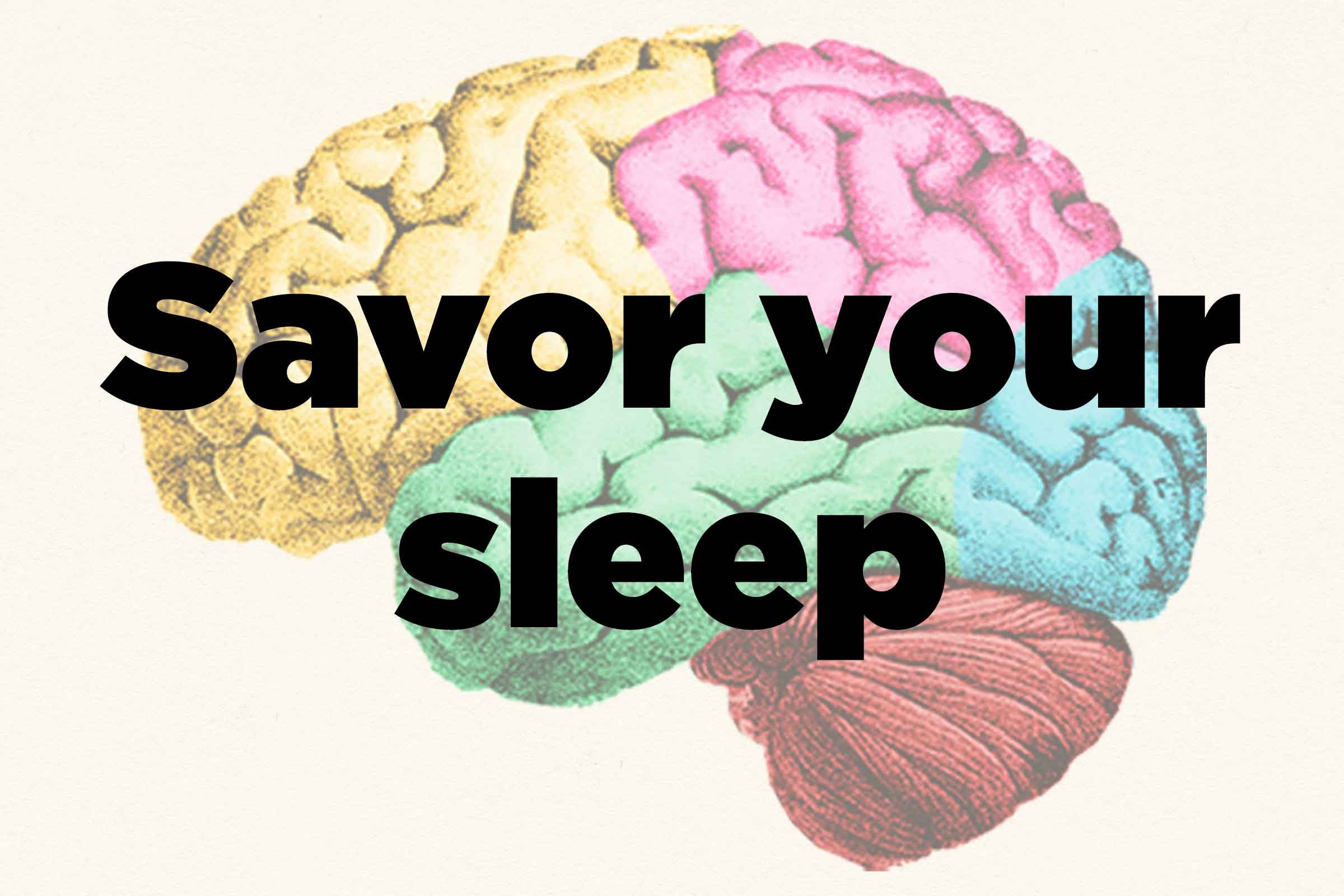
How to calm down: Sleep
“Sleep is very important in controlling levels of stress hormones,” says Chetty. “Sleep deprivation elevates stress hormones and can have negative impacts on the brain.” One of the biggest triggers of insomnia is stress, creating a vicious cycle, Dr. Merrill adds. “One surprising thing we’re seeing during the coronavirus pandemic is an increase in very vivid anxiety-provoking dreams,” he says, adding that he’s even experiencing them himself. “These dreams may be a way to help process confusing information and feelings.”
If you’re having a hard time sleeping, for whatever reason, start by practicing good sleep hygiene, including following a consistent sleep schedule; turning off electronics an hour before bed; avoiding heavy meals, cigarettes, and alcohol in the evening; and making sure your bedroom is cool (60 to 67 degrees) and free from noise and lights. Next, check out how to reduce stress for better sleep.
